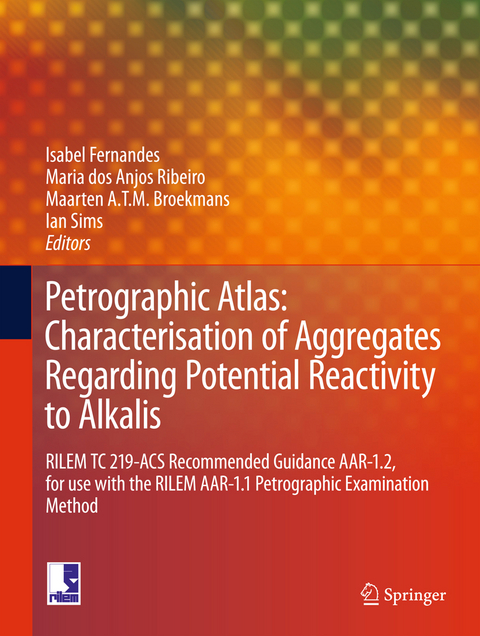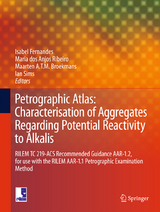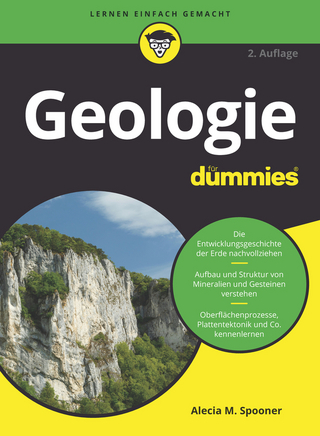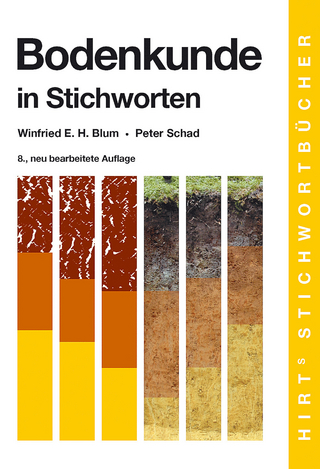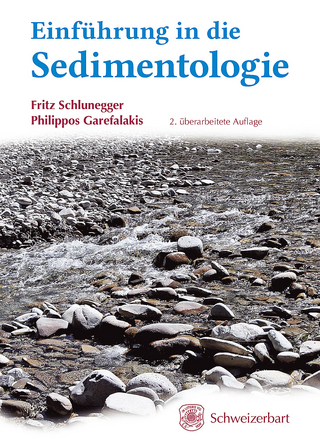Petrographic Atlas: Characterisation of Aggregates Regarding Potential Reactivity to Alkalis
RILEM TC 219-ACS Recommended Guidance AAR-1.2, for Use with the RILEM AAR-1.1 Petrographic Examination Method
Seiten
2016
|
1st ed. 2016
Springer (Verlag)
978-94-017-7382-9 (ISBN)
Springer (Verlag)
978-94-017-7382-9 (ISBN)
This RILEM AAR 1.2 Atlas is complementary to the petrographic method described in RILEM AAR 1.1. It is designed and intended to assist in the identification of alkali-reactive rock types in concrete aggregate by thin-section petrography. Additional issues include:
• optical thin-section petrography conforming to RILEM AAR 1.1 is considered the prime assessment method for aggregate materials, being effective regarding cost and time. Unequivocal identification of minerals in very-fine grained rock types may however require use of supplementary methods.
• the atlas adheres to internationally adopted schemes for rock classification and nomenclature, as recommended in AAR 1.1. Thus, rock types are classified as igneous, sedimentary or metamorphic based upon mineral content, microstructure and texture/fabric.
• in addition, the atlas identifies known alkali-reactive silica types in each rock type presented. It also identifies consistent coincidence between certain lithologies and silica types; however, it refrains from attributing alkali-reactivity to a specific silica property or quality.
• operator skill and experience remain essential for reliable assessment by thin-section petrography.
• aggregate materials must be classified according to local criteria, based on regional experiences with ASR-damaged field structures and geology. Access to additional data may be relevant for the assessment of imported materials.
• mere application of rock nomenclature does not provide any sort of warranty to the development of deleterious alkali-reaction. Such may result in either rejection of a suitable aggregate material, thus wasting a valuable resource, or acceptance of an unsuitable material leading to concrete damage, both of which are undesirable.
• optical thin-section petrography conforming to RILEM AAR 1.1 is considered the prime assessment method for aggregate materials, being effective regarding cost and time. Unequivocal identification of minerals in very-fine grained rock types may however require use of supplementary methods.
• the atlas adheres to internationally adopted schemes for rock classification and nomenclature, as recommended in AAR 1.1. Thus, rock types are classified as igneous, sedimentary or metamorphic based upon mineral content, microstructure and texture/fabric.
• in addition, the atlas identifies known alkali-reactive silica types in each rock type presented. It also identifies consistent coincidence between certain lithologies and silica types; however, it refrains from attributing alkali-reactivity to a specific silica property or quality.
• operator skill and experience remain essential for reliable assessment by thin-section petrography.
• aggregate materials must be classified according to local criteria, based on regional experiences with ASR-damaged field structures and geology. Access to additional data may be relevant for the assessment of imported materials.
• mere application of rock nomenclature does not provide any sort of warranty to the development of deleterious alkali-reaction. Such may result in either rejection of a suitable aggregate material, thus wasting a valuable resource, or acceptance of an unsuitable material leading to concrete damage, both of which are undesirable.
Preface.- Abbreviations and Acronyms.- Acknowledgments.- 1. Introduction.- 1.1. Sample Materials.- 1.2. Materials and Methods.- 1.3. Organization of the Atlas.- 1.4. Summary.- 2. Igneous Rocks, by Isabel Fernandes, Helena Martins, Maria dos Anjos Ribeiro, Fernando Noronha, Ian Sims.- 3. Sedimentary Rocks, by Isabel Fernandes, Maarten Broekmans, Maria dos Anjos Ribeiro, Ian Sims.- 4. Metamorphic Rocks, by Isabel Fernandes, Maria dos Anjos Ribeiro, Maarten Broekmans, Ian Sims.- 5. Characteristic Examples Of Reactive Silica, by Isabel Fernandes.- 6. Examples Of Asr In Selected Rock Types, by Isabel Fernandes.- 7. References And Bibliography.
| Erscheint lt. Verlag | 5.4.2016 |
|---|---|
| Zusatzinfo | 37 Illustrations, color; 467 Illustrations, black and white; XI, 193 p. 504 illus., 37 illus. in color. |
| Verlagsort | Dordrecht |
| Sprache | englisch |
| Maße | 210 x 279 mm |
| Themenwelt | Naturwissenschaften ► Geowissenschaften ► Geologie |
| Naturwissenschaften ► Geowissenschaften ► Meteorologie / Klimatologie | |
| Technik ► Bauwesen | |
| Technik ► Maschinenbau | |
| Schlagworte | aggregates • Alkali-Aggregate Reactivity • Concrete and Rock • Concrete damage • RILEM • Thin-section petrography |
| ISBN-10 | 94-017-7382-3 / 9401773823 |
| ISBN-13 | 978-94-017-7382-9 / 9789401773829 |
| Zustand | Neuware |
| Haben Sie eine Frage zum Produkt? |
Mehr entdecken
aus dem Bereich
aus dem Bereich
